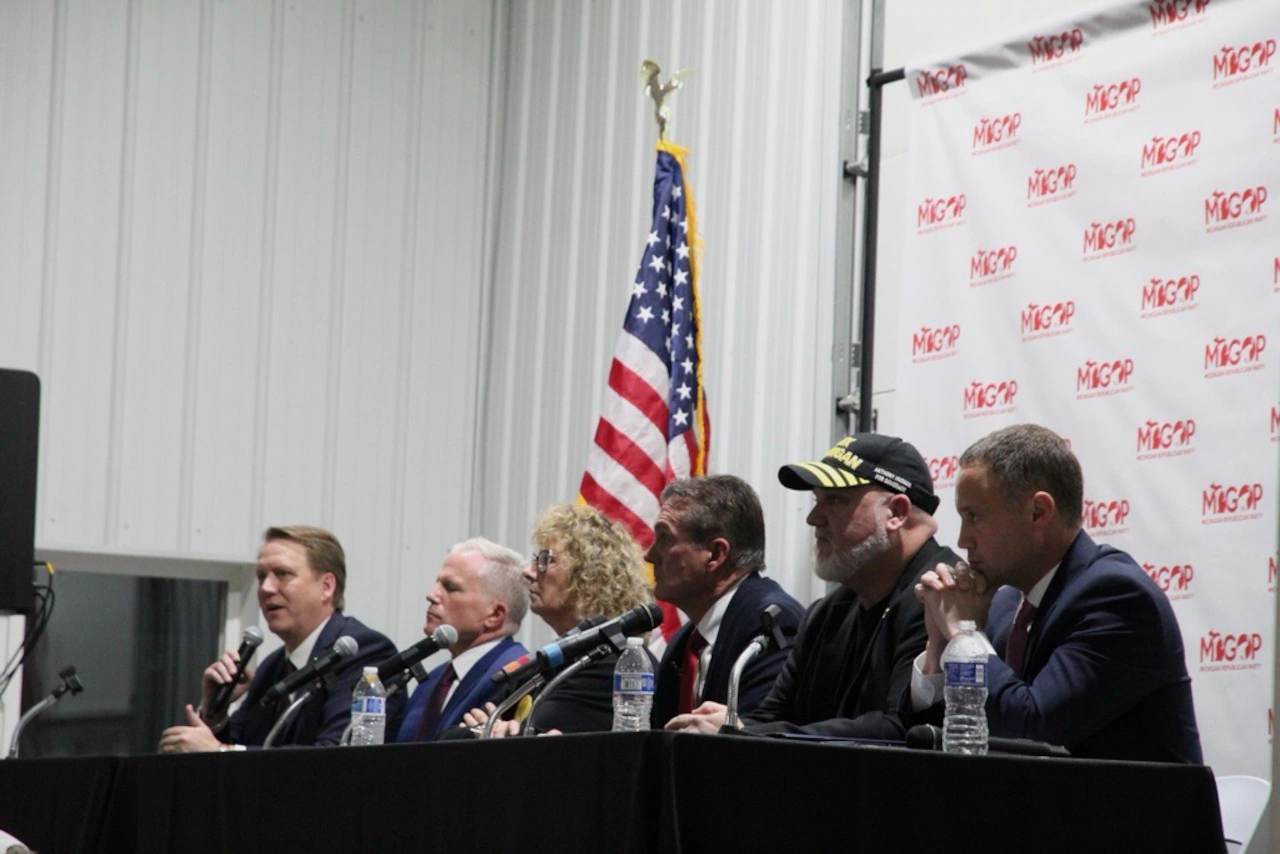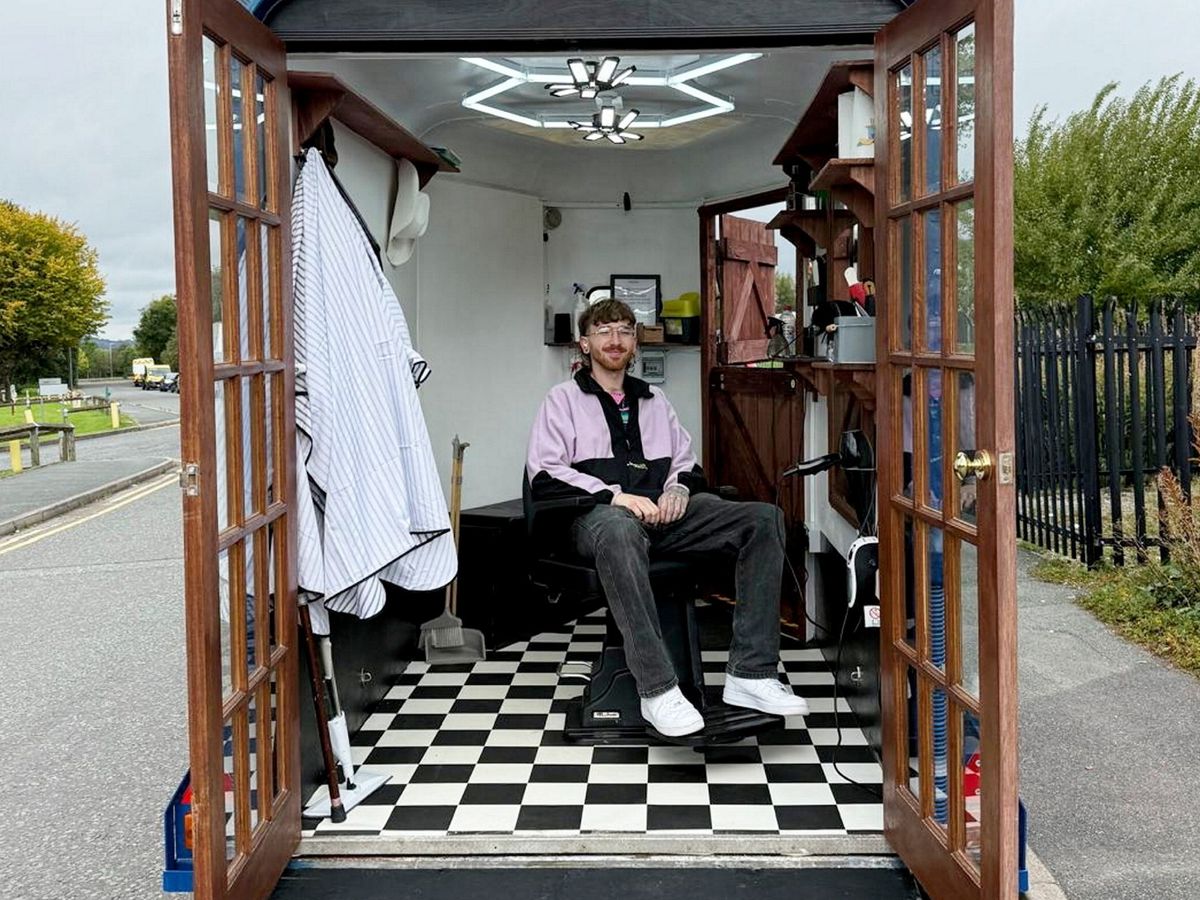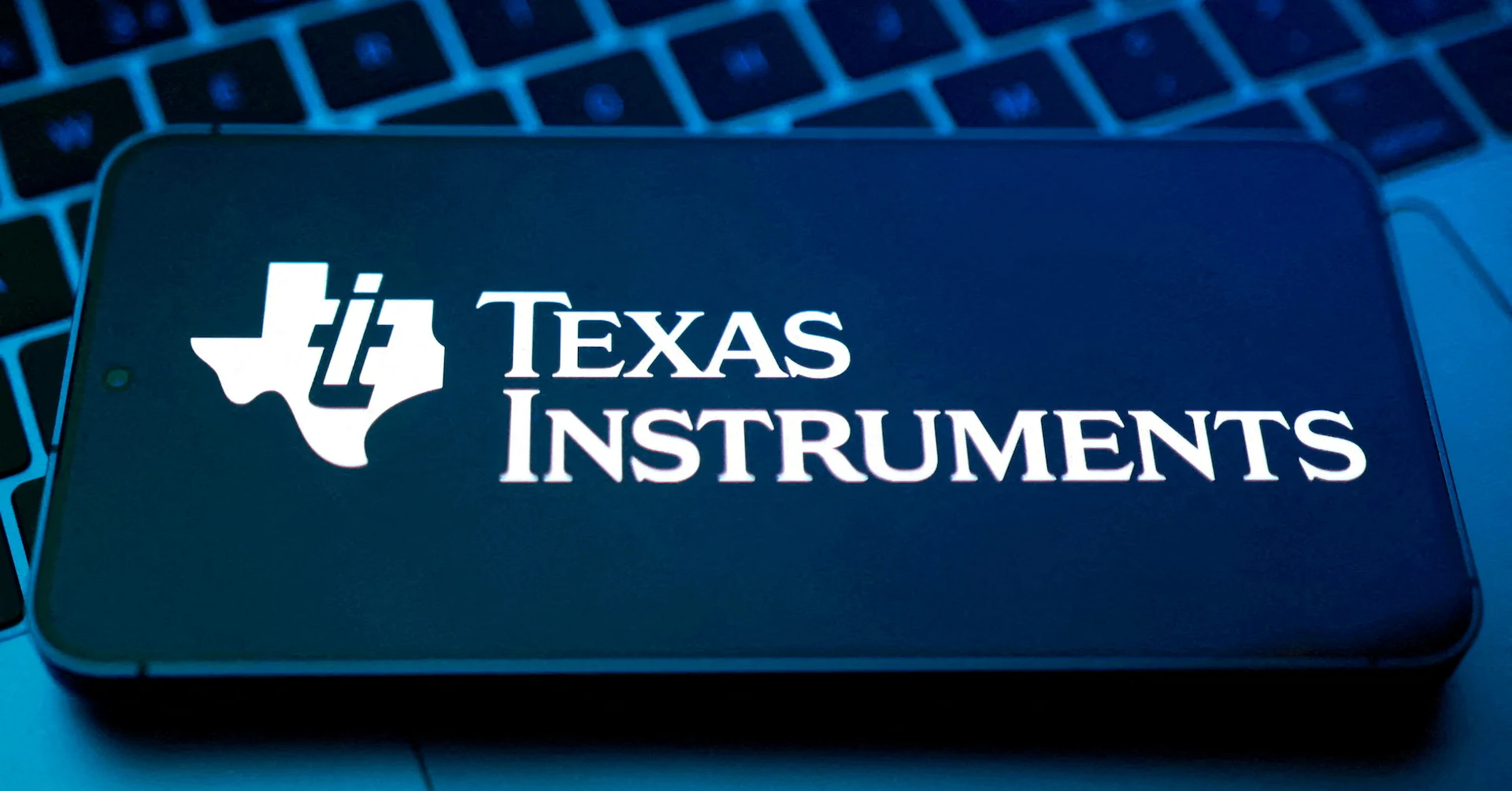Copyright M Live Michigan

SPARTA, MI - The first of three debates among 2026 Republican candidates for Michigan governor kicked off without many punches pulled between candidates - and instead some policy agreement. Inside Apple Valley Events, the same barn event venue where Vice President JD Vance spoke on the campaign trail in 2024, nearly all six Republican candidates in attendance agreed on proposals to remove either the state income tax or property tax - or both. It was among the most frequently brought up issues. They also mostly found agreement on supporting President Donald Trump if he decided to deploy the National Guard to Michigan. Other topics discussed during Wednesday night’s debate: reworking state business incentives, a need to fix a broken education system and the importance of reinstating Right to Work, a state law repealed in 2023 that prevented non-union workers from being mandated to pay union dues. The three-round debate was moderated by Dave Bondy, a content creator and digital/video content manager at the Mackinac Center for Public Policy, a conservative think tank based in Midland. He replaced WOOD-TV political reporter Rick Albin, who was initially slated to moderate. The Wednesday, Oct. 29 event lasted about 90 minutes, with a longer-form answer section followed by a short-answer round and then closing remarks. It featured Michigan Senate Minority Leader Aric Nesbitt, former Attorney General Mike Cox, former House Speaker Tom Leonard, Ax MI Tax Executive Director Karla Wagner, Pastor Ralph Rebandt and business owner Anthony Hudson. U.S. Rep. John James, R-Shelby Township, was not in attendance. The seven Republican candidates, along with several Democrats and one independent, will vie for the open seat left behind by Democratic Gov. Gretchen Whitmer, who is term-limited and cannot seek reelection. The winner of the 2026 Republican primary will go up against one of the Democratic candidates for governor. Prominent Democrats in the running include Secretary of State Jocelyn Benson, Lt. Gov. Garlin Gilchrist and Genesee County Sheriff Chris Swanson. The two primary winners will face a third major candidate in the general election: Detroit Mayor Mike Duggan, who is running as an independent. During the 90 minute debate, all the candidates agreed on the need to remove some type of tax. When asked during a rapid fire round about if they would support reducing the state income tax, all candidates except Wagner said yes. Cox called it a “tax on work.” Rebandt said he would eliminate the income tax, but would focus on an elimination of the property tax first. Wagner said she believes the income tax is tied to prosperity, however, and said she only supports the elimination of the state’s property tax. That’s the one that will “steal your house if you can’t pay it,” she said. But she described the property tax elimination as necessary, and as the “beginning of DOGE in Michigan,” referring to the Trump administration’s recent efforts to shrink the size of the federal government. Rebrandt said a property tax removal would increase housing affordability in Michigan. Candidates also largely agreed on the need to rework business incentives funded by the state through the Michigan Economic Development Corporation (MEDC). Nesbitt said, “the MEDC is done.” He was joined by Hudson, Leonard and Rebandt in calling for the agency to be eliminated. All candidates but Wagner also called for a ban on business with Chinese entities. Wagner said she would consider leasing land to Chinese companies if they’re fully vetted, a statement that earned her some audience ire. When talking about business incentives, Leonard said states shouldn’t be picking winners or losers, or paying companies up front. He instead proposed the creation of a “customer service center” for businesses interested in moving to Michigan, where they could be connected with local governments and cut through the red tape. Both Nesbitt and Cox described reform as building an “economic garden,” creating good conditions so people in Michigan could thrive. On education, most candidates agreed that school curriculum must be overhauled. “(We) have to almost go backwards to build that foundation in order to be able to go forward,” Wagner said, highlighting a need to return to the basics: reading, writing and arithmetic. Rebandt agreed. He said teachers are missing the basics because of teaching extra “indoctrination,” and recommended removing sex education curriculum from schools. “I know some of you say, ‘I don’t know how to teach my kid trigonometry,’” he said. “But you know what, you can teach your kid sex ed.” Hudson proposed cutting down the state’s 539 school districts to 83 - one public school district per county. He said this would get rid of “overpaid administrators,” and would be combined with a restructuring of teacher pay by merit. Leonard proposed expanding early assessment criteria in schools - identifying which students are struggling and outfitting classrooms with more targeted supports. Nesbitt talked about an expansion of the skilled trades in schools, which he described as “competency learning.” While their education policy proposals differed in practice, nearly all candidates spoke about the importance of reinstating Right to Work. At the same time, they delineated on support for unions. Wagner said unions had their place in society “a long time ago, because they did make things better,” but today she believes they can be done away with. Rebandt said he does see the value of unions in terms of worker safety and community building, but said he also believes they’ve become too bloated. Leonard said he believes Right to Work is good for union members. Taking it away removed incentives for unions to work hard for their members. While the candidates stuck mainly to policy, there were some barbs thrown, including at absent candidate James, and about claims made by Cox that he was the only candidate to build his own business from scratch. Milk cartons placed on audience tables read “Please help find this candidate,” with a picture of James’ face. Nesbitt also repeatedly mentioned James’ absense during his debate answers. James, the Republican frontrunner in some early polling, did not appear. He instead released his campaign’s first ad on Wednesday. Called “Lock Doors,” the ad focuses on border security and healthcare. The ad itself was not mentioned during the debate. Following the announcement Wednesday that James would not be in attendance, Nesbitt’s campaign quickly sent out fundraising emails criticizing the decision. “Conservatives across our state deserve to know where their Governor candidates stand,” the email sent at around 4:30 p.m. read. “But John James is dodging tonight’s debate — yet again refusing to confront voters and provide his vision for Michigan.” James led the pack in early polling, but a straw poll conducted at the annual Mackinac Republican Leadership Conference on Mackinac Island put him in fourth place among declared Republican gubernatorial candidates. James also did not participate in the candidate forum at that conference. Nesbitt led that straw poll, followed by Leonard, then Cox and then James. The other debates yet to be held are Nov. 4 at the Athena Banquet Center in Roseville and Nov. 20 at the Great Wolf Lodge in Traverse City.



